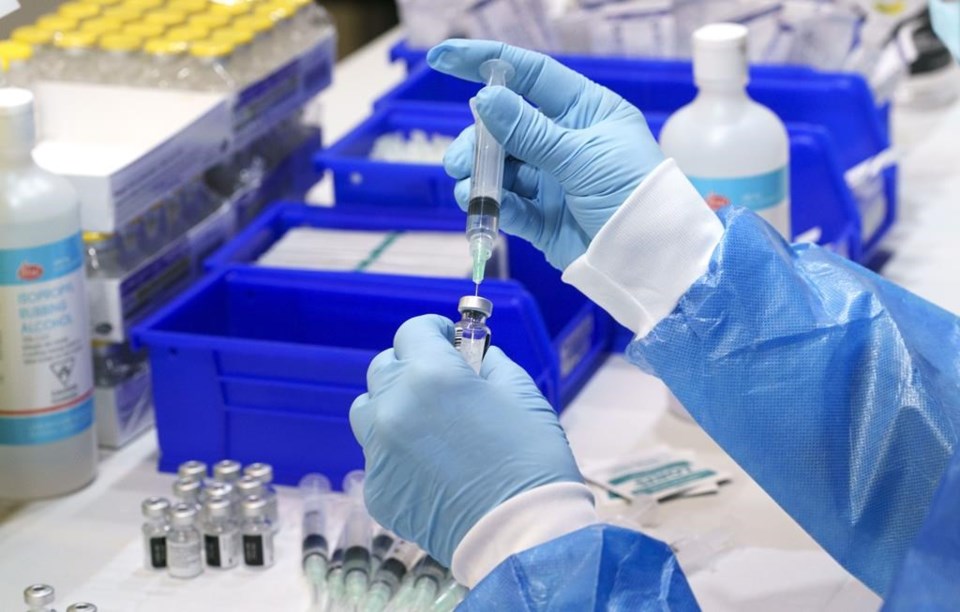MONTREAL — A "suppressive" approach to controlling the spread of more transmissible coronavirus variants in Montreal has prevented a spike in COVID-19 cases involving those mutations, the city's public health director said Wednesday.
Dr. Mylene Drouin said the more aggressive strategy explains the difference between Montreal, where the number of new COVID-19 cases has remained stable, and Ontario, where a government scientific advisory panel has said variants account for nearly half of all new cases and are driving a third wave of the pandemic.
In Montreal, Drouin told reporters Wednesday, the number of new cases has hit a plateau of about 325 for three weeks. The proportion of those cases involving variants has also levelled off at 20 per cent since Feb. 20.
The B.1.1.7 variant, first detected in the United Kingdom, is the only variant of concern with community transmission in Montreal, she said.
"I think we're delaying the predominance of the U.K. variant, and when we compare to our neighbour from Ontario, we see they do not have this plateau, so we can see what would be the progression if we did not have a suppressive approach," she said.
That approach involves more extensive contact tracing for variant cases, she said. In addition, contacts that would normally be classified as "low risk" are deemed "moderate risk" when a variant is involved. That means they are asked to get tested and to self-isolate for 14 days.
"When we have a variant in a specific setting, a school, daycare or workplace, we identify more contacts, we do massive screening, and during this massive screening of contacts, we ask the people that live with those contacts to isolate themselves while we're waiting for the results of the tests," Drouin said.
Still, Drouin expects that the variant will become the predominant form of the virus being spread in Montreal within the next four weeks.
Taking an aggressive approach is the right strategy, Dr. Catherine Hankins, co-chair of the federal government's COVID-19 Immunity Task Force, said Wednesday.
"This variant is up to 50 per cent more transmissible, if you don't jump on it aggressively, you're going to have much more transmission happening and it will take over much more rapidly and once there's more of it around, then more cases are generated from it and it just spirals," said Hankins, who is also a professor of population and public health at McGill University.
"I think it's important to be aggressive now," she added.
Montreal is the region of Quebec that has been hardest hit by the pandemic, and it has the majority of cases involving variants in the province.
Quebec's public health institute on Wednesday confirmed 19 more cases involving variants of concern, for a total of 541, most of which involve B.1.1.7. It said it has detected 2,352 presumptive variant cases, an increase of 173. Montreal has had 327 of the confirmed cases and 1,094 of the suspected cases.
The variant is primarily spreading in neighbourhoods in the western part of the city, Drouin said. In those areas, it is being carried from schools and daycares to homes, where it infects parents, who can then transmit the virus in the workplace.
Sonia Belanger, CEO of the regional health authority in south-central Montreal, told reporters 287,000 people in Montreal have received at least one dose of vaccine and that over 75 per cent of Montrealers over 65 have received at least one dose or have an appointment to receive one.
She said, however, a little less than 70,000 of the 250,000 health-care workers in the city have received a dose. But not all of those workers are yet eligible to receive the vaccine.
Belanger did not specify how many health-care workers are part of the "priority group" who are eligible to be vaccinated. She said vaccination remains voluntary for health-care workers and that she doesn't want to create a list of workers who have refused to be vaccinated.
Quebec on Wednesday reported a sharp rise in the number of intensive care patients in COVID-19 wards, up by 16 for a total of 107. The number of people in intensive care varies on the medical needs of patients, Health Department spokeswoman Marie-Louise Harvey wrote in an email, describing the rise as "not worrying."
Health officials also reported 703 new cases of COVID-19 and 13 more deaths attributed to the novel coronavirus, none of which occurred in the past 24 hours. Total hospitalizations dropped by one, to 532.
The province says it administered 28,812 doses of vaccine Tuesday, for a total of 804,806. Quebec has reported 299,450 infections and 10,570 COVID-19 deaths since the pandemic began and it currently has 6,833 active reported cases.
This report by The Canadian Press was first published March 17, 2021.
———
This story was produced with the financial assistance of the Facebook and Canadian Press News Fellowship.
Jacob Serebrin, The Canadian Press

